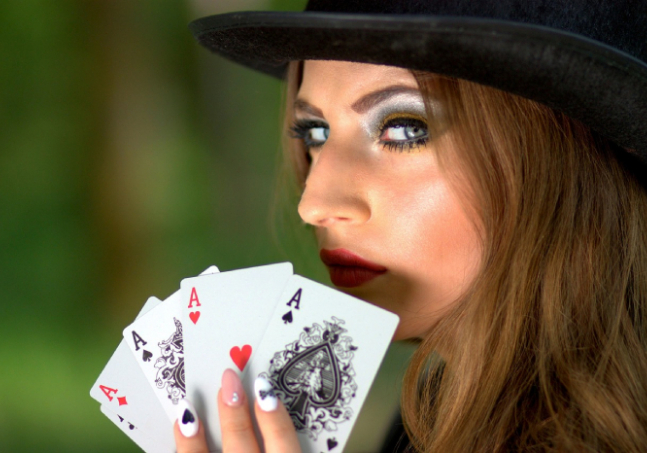The life of a professional poker player might sound fabulous–full of jet-setting to high-stakes tournaments, lavish lifestyles, and luxury. However, for most players, the reality is much more like that of any other career.
It’s a disciplined routine, one that involves not just playing the game but also a considerable amount of study, analysis, and self-improvement. Some players might enjoy more flexibility in their schedules, but the day-to-day experience of a professional poker player like Daniel Negreanu or Jason Koon shows a mix of passion and professionalism.
Playing the game
For most professional poker players, playing the game is the most time-consuming part of their schedule. A typical poker player might spend anywhere from 30 to 40 hours a week at the tables, whether it’s online or in live cash games and tournaments.
For example, a player like Fedor Holz might shift between playing high-stakes live tournaments for a few months, followed by a stretch of grinding online cash games to stay sharp. The variety helps prevent burnout and keeps the player mentally fresh.
In the case of someone who plays mostly live cash games, the day might start with some warm-up exercises to get into the right mental space. This could be reviewing previous hands, meditation, or even light physical exercise. Once at the table, whether virtual or real, a poker player like Andrew Neeme might spend the next several hours playing a 6-max cash game. The flexibility of cash games allows for more control over the length of play, with breaks built in to refresh and refocus.
Online play, on the other hand, tends to offer more flexibility in terms of hours and game types. Many poker pros will switch between formats like cash games and online tournaments depending on their focus for the week. According to poker expert Filip Jovichevski, online poker allows players to multitask and log hours without needing to physically attend a poker room, making it easier to fit in with other aspects of their career (source: https://poker-online.com/).
Studying and improving
Just as with any competitive field, poker requires ongoing learning. Studying the game is important if a player wants to stay ahead of the curve, especially at higher levels. Professionals like Doug Polk, for example, are known for spending up to 10 hours a week reviewing hands, studying game theory optimal (GTO) strategies, and analyzing opponent tendencies.
Poker players often use tools like PioSolver or GTO Wizard. These tools allow them to simulate a variety of poker situations, from different board textures to various bet sizes. By running these simulations, they can refine their strategies and learn the correct frequencies for betting, raising, and folding in specific spots. This level of study is critical because poker is no longer just a game of feel and intuition. Instead, it's a precise, calculated game that requires mastery of mathematical concepts.
Players will also record their gameplay so they can review it later. They often focus on specific spots where they might’ve made mistakes. This helps them recognize their leaks and areas where they can improve. Reviewing hands from the previous day is a common morning activity before sitting down to play again.
Coaching and teaching
Many top players also supplement their income and deepen their understanding of the game by coaching others. Professionals like Jonathan Little or Matt Berkey spend a part of their week coaching students, writing articles, or creating instructional videos. Teaching is often an invaluable tool for these pros because explaining concepts to others forces them to understand the game on a deeper level themselves.
Coaching also serves a dual purpose for players. It’s not only a source of additional income but also a means of reviewing their fundamentals. Teaching others the correct approach to pre-flop ranges or post-flop decision-making is helping those players to keep their own game in top form. Coaching can occupy around 3-5 hours of their weekly routine.
Fitness and mental health
Poker is a mentally taxing game. With so much focus and attention required at the tables, players need to keep their physical and mental health leveled. Phil Ivey, for example, has long been known for incorporating physical fitness into his daily routine. He always emphasizes the importance of both mind and body when playing poker at the highest levels.
A typical day for many pros might include not just time at the tables but also time for physical exercise, whether it’s running, yoga, or weightlifting. Physical fitness helps improve stamina during long poker sessions and keeps the mind sharp.
Also, many players focus on their mental health through practices like meditation or mindfulness exercises. This helps players maintain emotional control at the table, where going on “tilt” can be costly.
Mindfulness and meditation have become popular among poker professionals because they can help in high-stress situations, particularly when dealing with bad beats or extended downswings. Practicing self-control and maintaining a positive mental attitude are key traits that set the best players apart from the rest.
Travel and tournaments
For players who focus primarily on live tournaments, travel is a significant part of their routine. Top professionals like Liv Boeree and Erik Seidel spend a large chunk of their year traveling to various poker stops like the World Series of Poker (WSOP) in Las Vegas, the European Poker Tour (EPT), or high-roller events in exotic locations such as the Bahamas or Monte Carlo.
On tournaments players often sit for 12 to 14 hours a day over the course of several days. For example, during the WSOP, a player might spend weeks playing day in and day out, hopping from one event to the next in hopes of hitting a big score. While the payout can be significant, the variance in tournament poker means that some pros can go months without a major cash.
Traveling for poker also comes with its own set of challenges, including jet lag, hotel life, and the general grind of being away from home. For pros who are constantly on the road, like Daniel Negreanu in his prime, the tournament circuit can be both thrilling and exhausting. However, it’s a lifestyle that many are willing to embrace for the opportunity to compete at the highest levels.










.jpg)
.jpg)

.jpg)




How does it work?
Locate and discover worldwide casinos
Find their promotions, events and enjoy exclusive deals
Good luck!